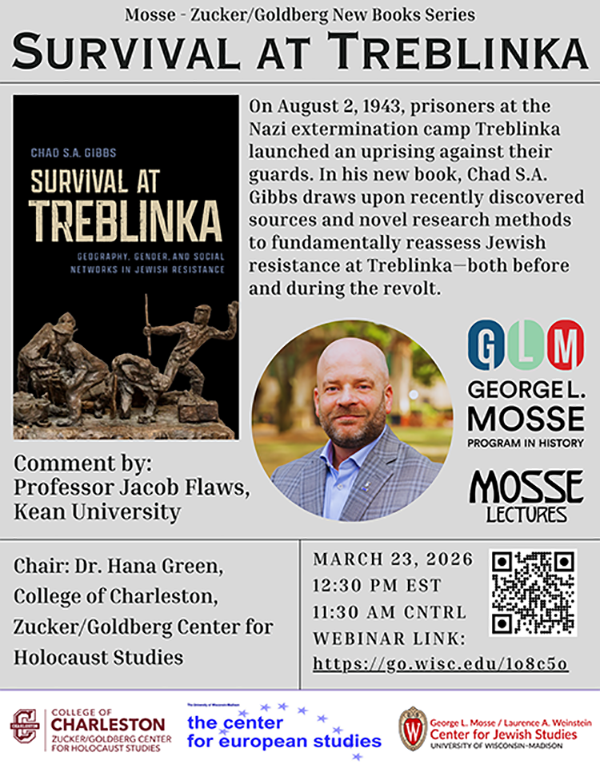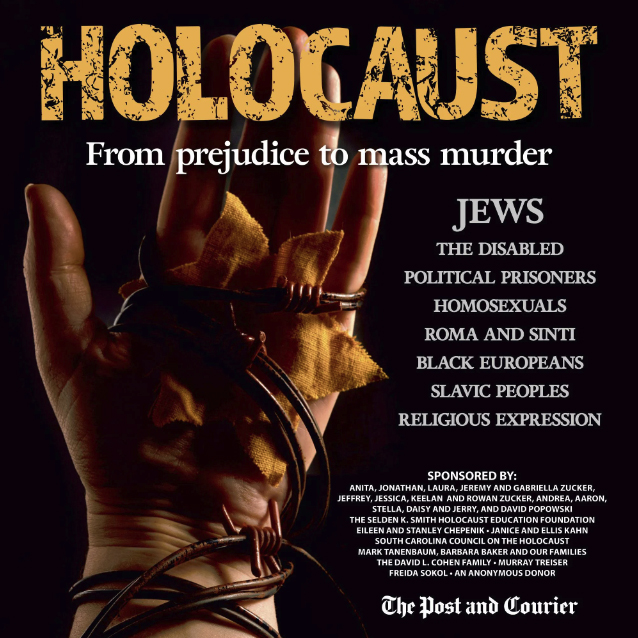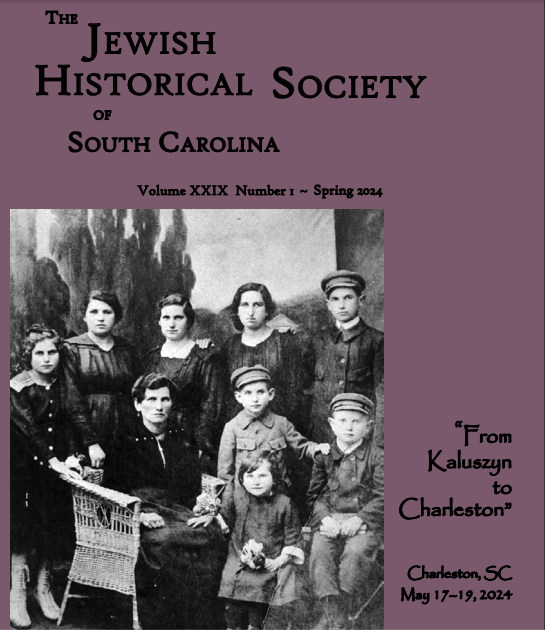Dedicated to the preservation of Holocaust memory and the advancement of genocide and human rights education at the College of Charleston and beyond
Holocaust Survivors gather at Charleston Memorial, 2000 | Photo credit: Bill Aron
“It happened, and therefore it can happen again: that is the core of what we have to say.”
– Primo Levi
The Zucker/Goldberg Center for Holocaust Studies is dedicated to the provision of learning opportunities for students at the College of Charleston, our community members in the South Carolina Lowcountry, and to interested individuals worldwide through our virtual resources. The activities and initiatives of the Center are motivated by a belief that knowledge of Holocaust history and human rights are pivotally important aspects of “education for citizenship” in the world of today.
The Center was founded to preserve the memory of Holocaust victims and educate future generations about these events and their lasting legacies. We believe that learning is the path to a world in which “Never Again” is a reality, not just a hope.
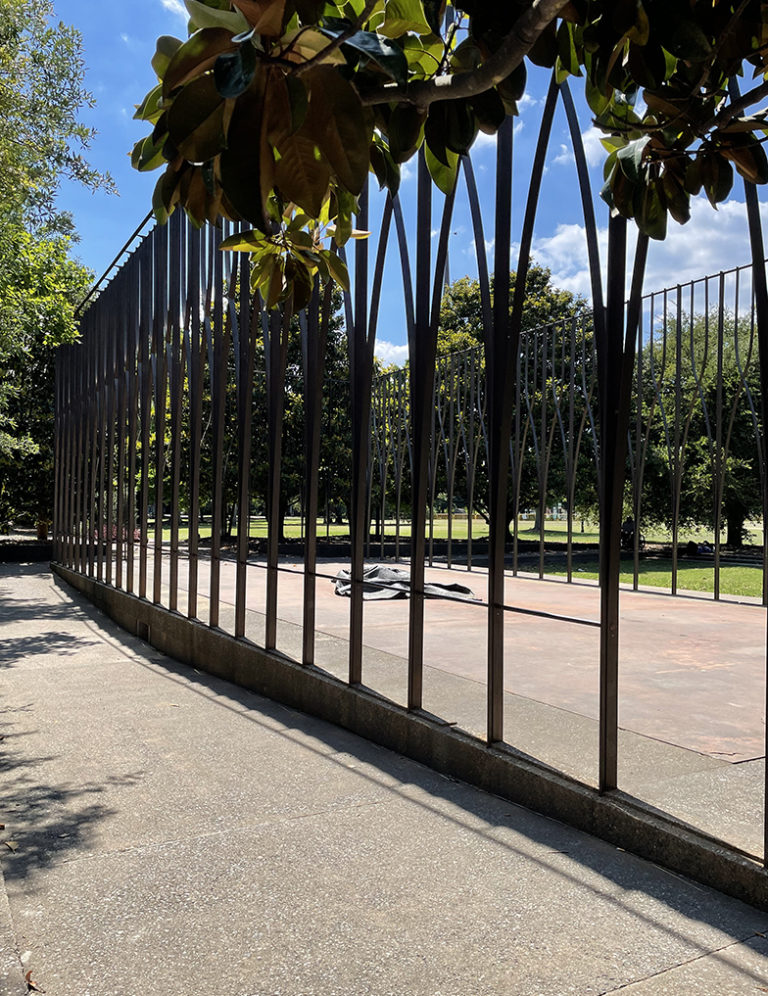
The Holocaust Memorial in Charleston, SC
About the Zucker/Goldberg Center for Holocaust Studies
The Center provides regular courses on the Holocaust, antisemitism, genocide, and related topics in addition to hosting regular visiting lectures at the College of Charleston. We further provide funding support for students of the College focusing in these topics here in Charleston, in exchange to other institutions in the US, and for study abroad.
The Zucker/Goldberg Center also works with the wonderful staff at Addlestone Library Special Collections to preserve the artifacts, recordings, and writings of Holocaust survivors, liberators, and their descendants living in the South Carolina Lowcountry. See our Events page and follow us on social media to find out what we have planned next.
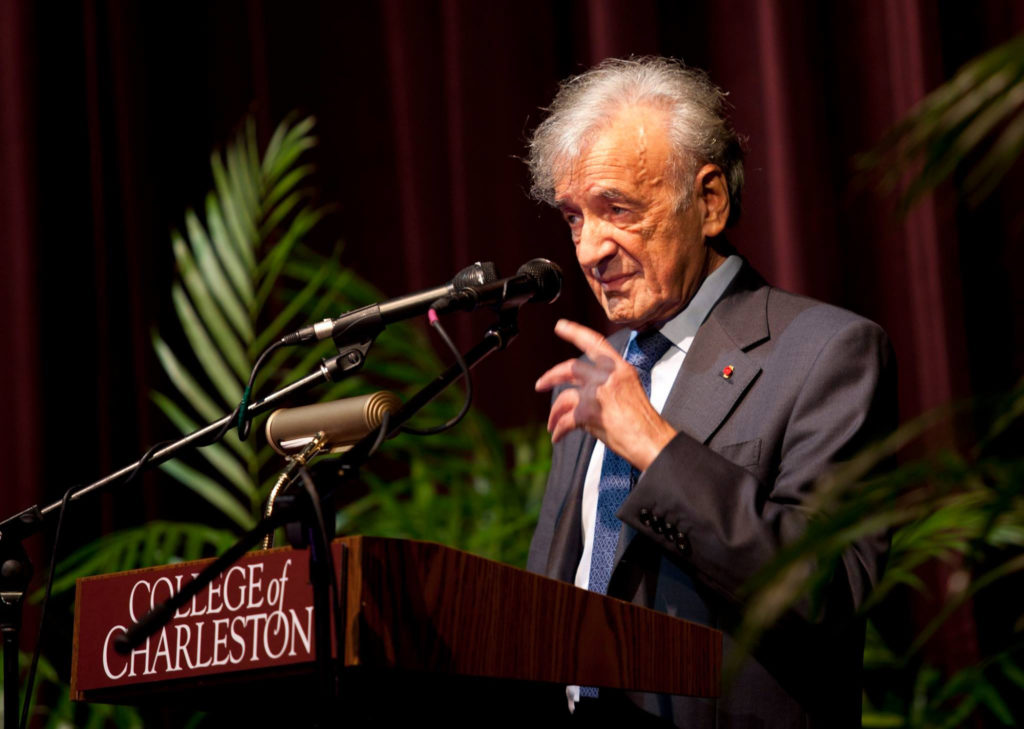
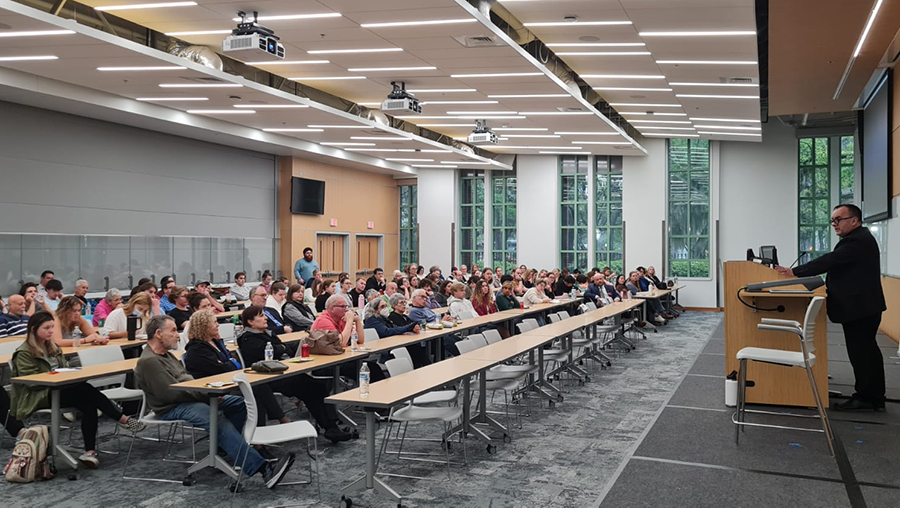
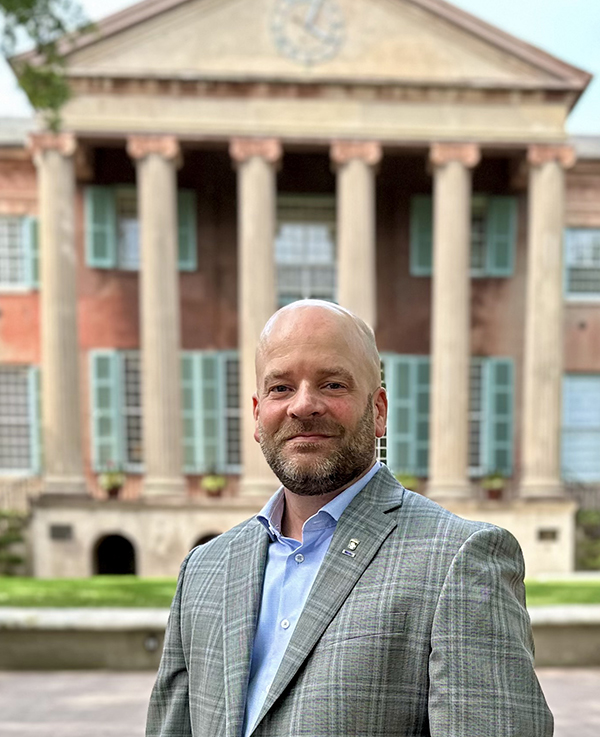
Assistant Professor Chad Gibbs
Chad Gibbs joined the College of Charleston as assistant professor of Jewish studies and director of the Zucker/Goldberg Center in fall 2021. Professor Gibbs teaches the history of the Holocaust, antisemitism, comparative genocide, and related topics. His research interests include Jewish resistance to the Holocaust, gender studies, memory and memorialization, and oral history.
In his current project, Professor Gibbs uses spatial and social network analyses to expand our understanding of resistance and survival at the Nazi extermination camp Treblinka. Those interested in his work should see his professional website here. He attained his PhD from the University of Wisconsin-Madison, his MA from the University of Nebraska at Omaha, and his BA from the University of Wyoming. Before entering academic life, Professor Gibbs served in the US Army, including deployment to Iraq.
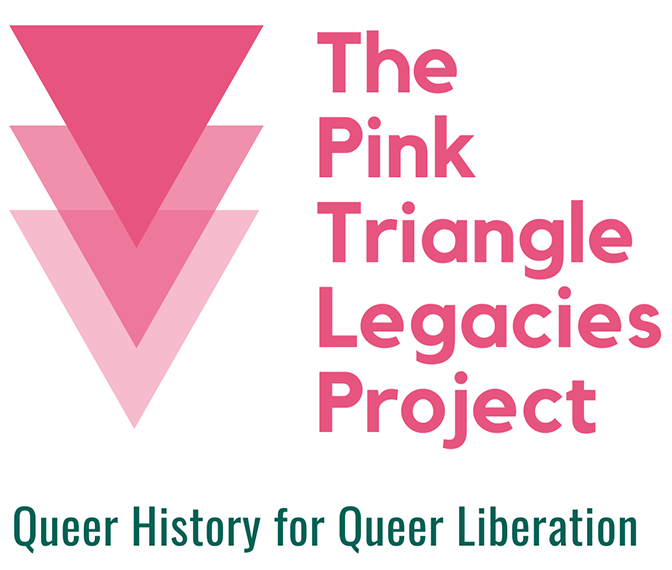
Pink Triangle Legacies Project Partnership
The Pink Triangle Legacies Project is a grassroots initiative that honors the memory of the Nazis’ queer victims and carries on their legacy by fighting homophobia and transphobia today through education, empowerment, and advocacy. The PTL Project’s virtual Public History Internship, in partnership with the Zucker/Goldberg Center for Holocaust Studies, equips a College of Charleston student with the skills and resources to document and present the history of the Nazis’ LGBTQ+ victims. Public History Interns develop resources that make this history free and accessible to diverse audiences in and beyond the classroom, including social media, digital essays, handouts, and YouTube videos.
Post & Courier Yom HaShoah Educational Section
The Yom HaShoah Special Educational section is a yearly collaborative effort of the Post & Courier, the Charleston Jewish Federation, the Zucker/Goldberg Center and other local stakeholders. Professor Gibbs acts as historian of record and writes content for the section.
Readers can access the current and several previous sections here.
Jewish Historical Society of South Carolina Magazine, Spring 2024
Upcoming Events
Mosse-Zucker/Goldberg New Book Webinar: Zoom presentation by Professor Chad Gibbs, with comment by Professor Jacob Flaws, Kean University.
